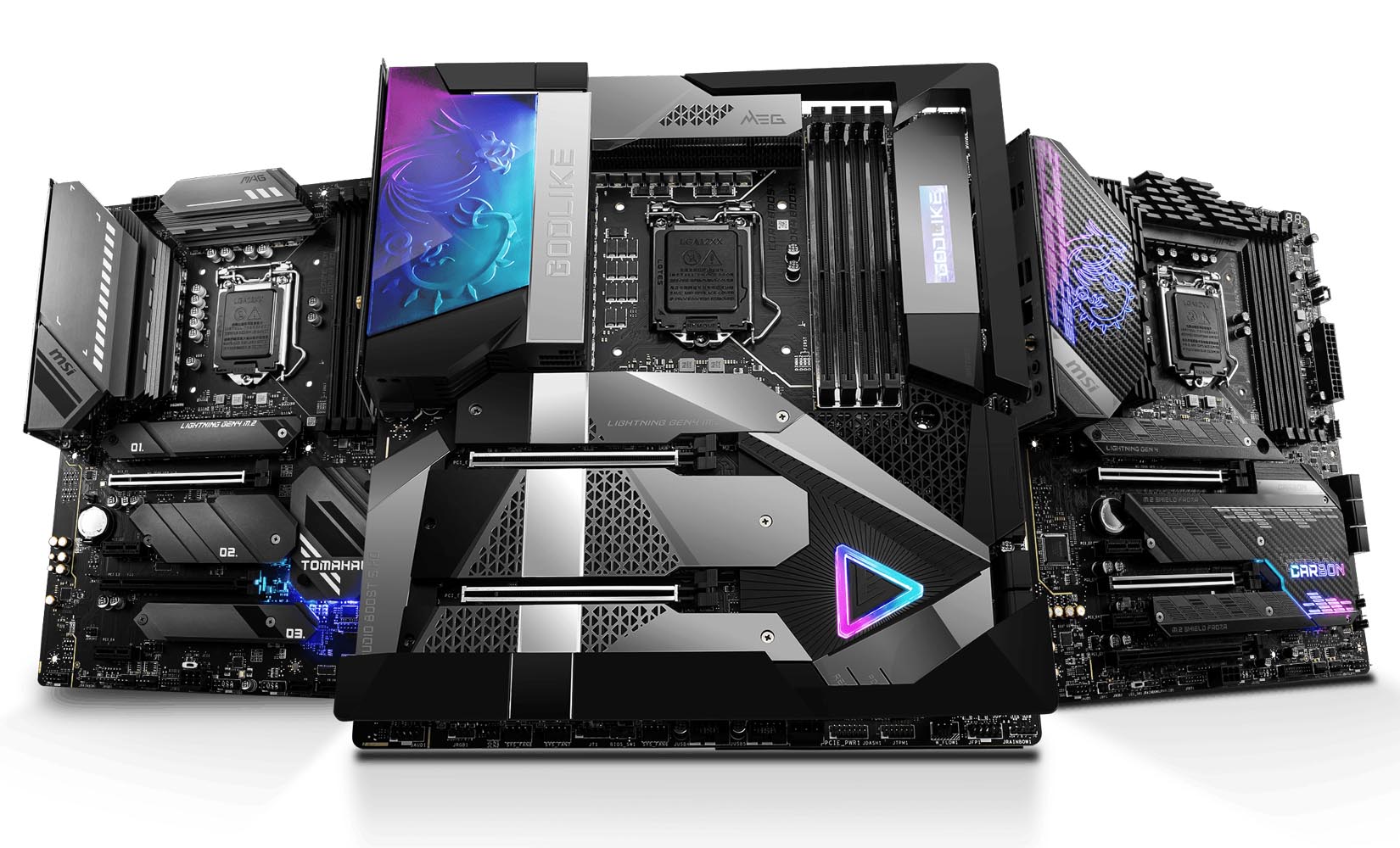Top 5 Components when building your Gaming PC
تم النشر بـ WAEL MOHAMED
Are you having difficulties making up your mind on how to put together or upgrade your gaming PC? Luckily, today we’ll be discussing a gaming PC’s most top 5 important components. This ranking list doesn’t imply that a specific component should be overlooked, as all components play a role. Therefore, this list is looked from the perspective of their functional importance. Let’s begin from component #5 in the list and move our way up.

- Storage:
Storage is something each and every one of us struggled with at surely more than one point in our lives with any device we have owned. Although in a computer, both the SSDs (Solid State Drives) and HDDs (Hard Drives) act more than just a storage for storing games and other data. Not to mention they function differently technology-wise. One thing to keep in mind while choosing one of the two, is to weigh them out by matching the appropriate storage drive to your budget and goals.

The basic distinction between them is that SSDs are smaller, higher in cost, and use flash-based memory to store data, which allows it to not require any internal moving parts. This permits the SSD to have really fast writing and reading speeds. On the other hand, HDDs are bigger, lower in cost, and use spinning magnetic media to store the data, which makes the HDD write and read slower, and risks the possibility of getting damaged due to the parts moving internally. To conclude, SSDs are the most efficient when it comes to loading video games, multitasking, transferring data and even video editing. Meanwhile, tasks that don’t require as much necessity in writing and reading speeds, HDDs can be used solely for data storage. This doesn’t entirely mean that HDDs are incapable of running video games, it just means loading them would be slower.

It’s surely recommended to put into consideration buying both an SSD and an HDD for those building or upgrading their PC, especially on a budget. The SSD should have the boot drive, with maybe a game of your choice that you critically need to load faster, but if you’re not a fan of installing games into your boot drive, then you could possibly consider an extra SSD, where you can assure fast loading speeds in all your games, as well as memory-intensive programs. Besides that, an internal or external HDD should be added alongside the SSD for all necessary backup needs and most importantly, storage space.
- Motherboard:
Moving onto the backbone of a computer, and that is the motherboard. It’s the main house or foundation of a PC since it gathers and electrically connects all the other components together in one place. The design of a motherboard allows for extra parts to be included, which are called motherboard components, such as data connectors, power, heat sinks, and capacitors.

Generally, the performance of a computer or how smooth a game runs, doesn’t rely one bit on the motherboard. Instead, certain motherboards could limit the installation of certain components, such as the CPU, GPU, or memory. These are known to be the non-gaming motherboards, which tend to be cheaper and more suitable for office work. On the contrary, there are the gaming motherboards, that start from just above average in cost, which would be limitless in terms of hardware incorporation, meaning that it supports the extra functions needed for gaming, like SATA ports for drives, sufficient memory slots for the amount of desired memory, PCIe slots for video cards, and would have extra features, like overclocking. A decent push in gameplay performance can be achieved with overclocking. In return, the CPU will run at a much higher speed that will lead to a voltage increase on the motherboard, and more heat produced on the CPU. Thus, investing in a compatible CPU that is just right for the build will create a solid and stable gaming PC.

The great thing about motherboards is that there are plenty of options to choose from at every possible price level, depending on what you have in mind for the purposes of your build.
- Memory:
Next up, the key component in any gaming PC is the memory, which is known as the RAM (Random Access Memory). During the processing of any data and programs, the PC stores them into the RAM temporarily, until the PC shuts down or reboots, then the RAM resets. Let’s go ahead and shed light on the importance of RAM in gaming PCs.
First of all, a computer won’t have the capability to store all of a game’s data and information that it needs in order to run properly if it has low RAM, which will lead to slow and poor performance with choppy FPS or frame rates. Meanwhile, some games may not even work at all due to an extreme lack of RAM. Second of all, having more RAM isn’t the sole condition to having a smooth running gameplay, rather combining the RAM with its compatible motherboard and processor is the beginning to having a steady functioning PC.

Thankfully, the first step to making a decision between an 8GB and a 16GB RAM isn’t too complicated, considering that today’s baseline for gaming is 8GB, while a 16GB is for a more ensuring option on the long-run.
- Graphic Cards:
Let’s jump into what can be referred as the “heart” of the system, which is the GPU (Graphics Processing Unit). Technically, there’s an additional processor within the GPU that extracts the data from the CPU, which enables it to be responsible for the acceleration and render of all that is displayed on screen, whether images, videos, or animations. This makes it the second most impactful on the performance of a gaming PC, mostly in terms of visuals.

Nowadays, GPUs have reached a new level in performing parallel tasks and processing large chunks of image information, such as extreme speed in processing complex 3D graphics that are usually required in modern gaming experiences. In addition, they play an outstanding role for applications aside gaming, like video editing or graphics design. As we all might know, the biggest competition in the GPU field is between NVidia and AMD,

with a broad variety of options, and the ideally appropriate one for your PC build fully relies on your operating system, as well as the PC’s specs.
- Processor:
Last but not least, the main “brain” of any computer is the processor, which is also known as the CPU. Although games tend to be more GPU intensive, the CPU remains to be the essential core for the overall system performance. The power of the processor lies in providing instructions and allowing the computer to fully function and do its complex work.

This is why the more powerful and updated the processor, the faster the computer can process and complete its tasks. This means everything that is happening must pass from the CPU first, keep in mind that the letter “P” in the name stands for “Processing”. So, despite how powerful a graphic card may be or how fast the RAM is, every frame, every movement in the game, and so on, must be processed first before it displays on screen. Now, if the CPU is slow, the other computer components, especially the GPU in the case of gaming, won’t be able to perform at their full potential, since the CPU then turns into what is known as “bottleneck”, which is a kind of hardware limitation in the PC due to the capacity of an application or a computer system is severely limited by a single component, that makes it the weak link in the system. For example, this is very likely to occur in a situation that tends to happen quite often, where the GPU isn’t compatible with the processor, like putting a Core i5 with an RTX 3080 in a PC.

Before moving onto the question that we’re all wondering of, “which processor is good for what?”, let’s quickly talk about the cores in a processor. The cores are basically the number of small processors, or shall we say rooms, within a bigger processor, where every room/core is independently responsible to perform or process all types of computational tasks. Hence, the more cores, the better. With that in mind, for those who focus mainly on office software, should aim for a 4-core processor like the Core i3 or Ryzen 3. As for the gamers, a processor starting from 6 cores is highly recommended, such as Core i5 or Ryzen 5. Finally, a work station that is required for the designers with their hefty graphics work, will want to have a minimum of 8-core processor, which are Core i7 or Ryzen 7. Nowadays, processors start from 4 cores, to 6 cores, to 8 cores, and even higher. Let’s not forget to mention the ultimate overkill processors in the picture, like Core i9 and Ryzen 9 with their tons of variations and versions that start from 8 cores, all the way up to 16 cores.

=== split content ===













